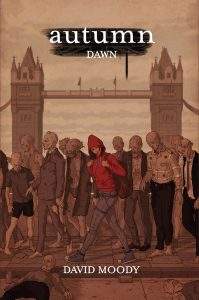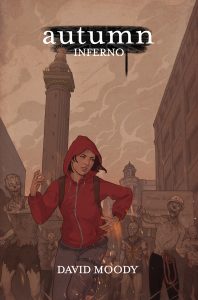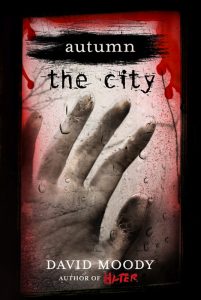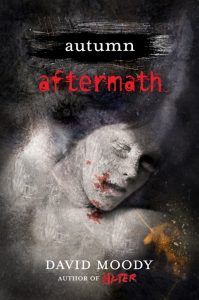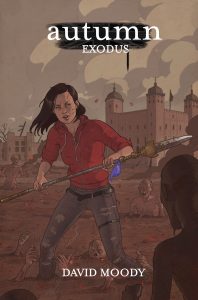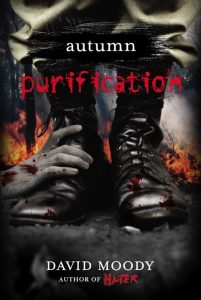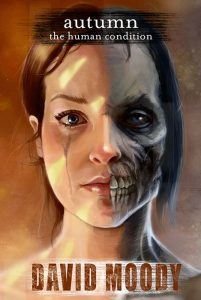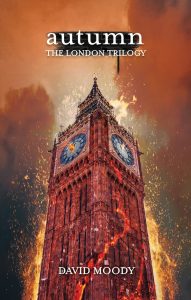Barely a Sound (part iii)
SPRING
More than six months had passed since the day almost everyone had died. Most of the bodies that had risen-up and walked again after death had by now become motionless again. Many had rotted down to almost nothing, decaying over time to a point at which they could no longer physically function. In Birmingham, the vast majority had been destroyed in the winter floods, unable protect themselves or find shelter, oblivious to the need. Small pockets of them did remain, typically those trapped within confined areas inside buildings, but in truth, they’d fared little better. Muscles, skin, internal organs, nerves, sinews… everything had been reduced to the same grim mulch – a foul smelling, toxic stew that had, paradoxically, become a stimulus for other forms of life. Incalculable numbers of insects now gorged on the remains of the remains. Elsewhere in the city, larger wildlife had begun to cautiously lay claim to the otherwise desolate streets, feasting on the swollen insect population before, in turn, being feasted upon themselves. In the almost total absence of humans, a whole new food chain had begun to be established.
Had there been anyone left to observe the first six months of the post-apocalypse in Birmingham, they’d surely have noted many bizarre things. Perhaps the strangest would have been that the two best preserved corpses in the city had both died on the toilet. Tucked away inside confined spaces within recently built office blocks, they’d been largely sheltered from the conditions that had affected most of the rest of the city’s million-strong population. Even after so long, both bodies refused to give up. One of them, who used to be a girl called Claire who’d been about to start work when she’d died, had been wedged tight in the same position at the side of the toilet pan for almost nine months. With her knickers and her trousers down around her swollen ankles, she’d simply been unable to move. In a building a short distance up from the cathedral on Colmore Row, Graham Porter, the other toilet bound corpse, had also barely moved. Morbidly obese in life, the processes of decay and putrefaction that had occurred inside his body after death had swollen his rotting gut to such a size that he’d been unable to lift himself off the throne. His arms still moved, and he retained some limited mobility in his neck, but over the weeks the rest of his bloated body had sunk into the pan, gravity emptying him out. But there was so much mould and decay in the cubicle now that if there had been anyone left to find Graham, they’d have struggled to identify him as ever having been human. He’d become part of his environment, no longer distinct.
There were other people left alive, but not here. It was strange the extent to which the end of the world had turned absolutely everything on its head. Prior to last September, folks had gravitated to cities like Birmingham, now they did everything they could to avoid them. Because of the build-up of corpses, the cities became no-go zones very early on in the disaster. Even though that threat had almost completely passed, other dangers remained.
In Needless Alley, a large crack had appeared along the outside wall of the supermarket that caught fire many months ago. Exposed to the elements throughout the winter just ended, prone to the effects of the floods and the freezes and the thaws, the building was beginning to crumble. The mortar between bricks had turned to dust. Plaster had fallen in great sheets from breezeblocks and stud walls.
Life continued in the gaps where people used to be.
As the temperature began to rise and the days lengthened through spring, plants began to grow throughout the ruined city. Weeds that would previously have been removed were instead able to grow voraciously; prodding, poking, and teasing through the cracks and gaps with their tendrils and roots. There was no one left to pull them up, hardly any animals to graze on them. The vegetation could grow unchallenged.
A little dog scampered through the shadows. It could easily have been mistaken for a particularly large rat, given how the food chain had been turned upside down. The poor thing looked feral, but it had been someone’s pet once. It had gnawed through itself free when its owner had died, and other than what was left of its chewed lead, the only sign that it had ever been domesticated was the grubby collar just visible beneath its matted fur. The dog had survived by attaching itself to a pack of other strays, holding back and picking off the scraps of whatever they left behind. And when most of the pack had died – some so hungry they began turning on each other – it fed off their remains before entering a state of virtual hibernation through the worst of the winter. It was a miracle the little creature had survived.
She stopped and sniffed the air.
Food!
Halfway along Needless Alley, the little dog clawed frantically at the ground.
There was a scrap of something edible, buried under rubble. It might have been the remains of a corpse or another animal, or something else altogether. Food was so hard to come by; she couldn’t let the opportunity pass.
She stopped again. Something was wrong.
She sensed it – felt it – but didn’t understand it. It was a low, continuous growl, but it wasn’t thunder or a car or another animal or any of the other noises she used to hear (and fear) in the days before all of this. The dog growled back, trying to deter whatever it was that was coming for her, but her miserable, frightened whine was inaudible over the increasing noise. Ears pricked, she continued to dig, paws working faster and faster, too hungry to risk leaving any trace of food behind.
The grumbling noise was a building collapsing under its own weight. One side of the burnt-out supermarket gave way, blocking the end of Needless Alley with rubble, and killing the dog instantly.
The noise echoed around the desolate city centre, reverberating along the empty streets, but there was nothing left alive to hear it or react.
Minutes later, structurally weakened by the collapsed wall, the rest of the building came down. The whole row along one side of New Street fell like toppled dominoes.
And when the dust settled, absolutely nothing moved.

